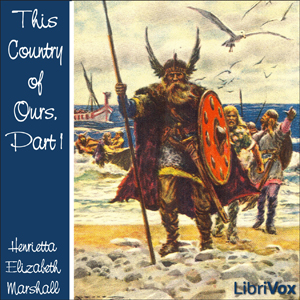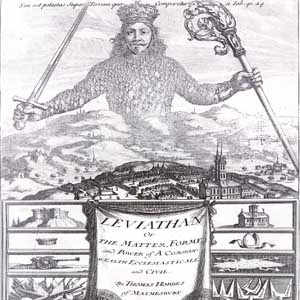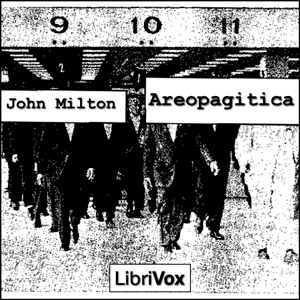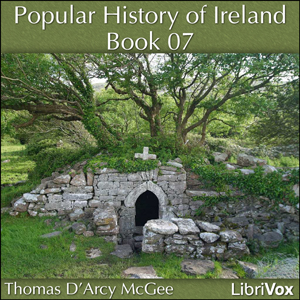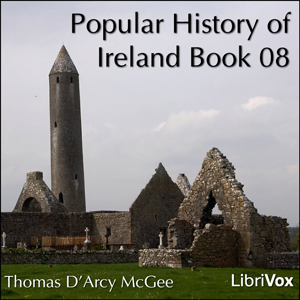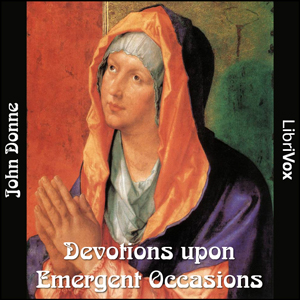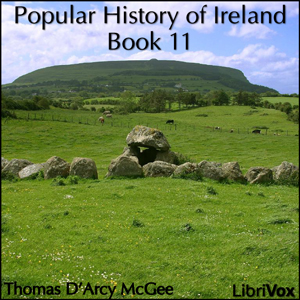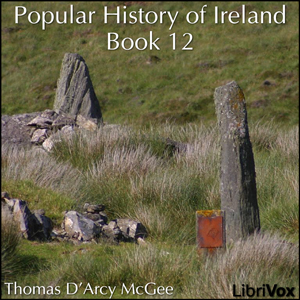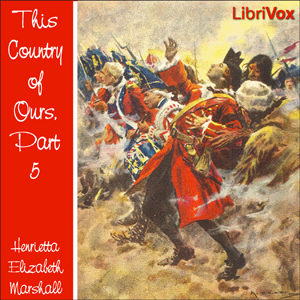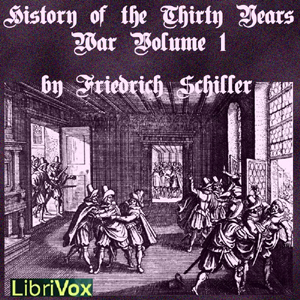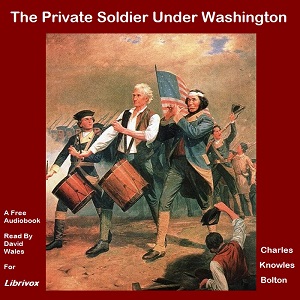
“Secret Chambers and Hiding Places” is a collection of concealments and their uses, almost all within England, although a very few passages and chambers in continental Europe are mentioned, Jacobite hidey holes in Scotland, while the final chapter of the book covers Bonnie Prince Charlie’s wanderings around Scotland, among caves and other hiding places. Most chapters are devoted to historical events; such as the the seventeenth century persecution of roman catholics (with many large houses having specially constructed “priests’ holes”), or various unpopular monarchs and their hiding places. The text is scattered with legends and true stories, with occasional skeletons found, still hiding, long centuries after the searchers have left. The author describes hidden doors, passages, rooms and pits with enormous enthusiasm … and with considerable regret when he has to describe secret places lost to demolition or modernisation. You’ll wish you could wander the country, poking into the darkest recesses of every old house you find! (Summary by Peter Yearsley)
16 episodes
Another fine history book for children! Published in 1917, Marshall’s book of stories from the history of the United States begins with accounts of exploration and settlement, and ends with the presidency of Woodrow Wilson.
This is Part 1: Stories of Explorers and Pioneers, from Leif Ericson to Sir Walter Raleigh. Read along and view the original illustrations at mainlesson.com.
Part 2: http://librivox.org/this-country-of-ours-part-2-by-h-e-marshall/
Part 3: http://librivox.org/this-country-of-ours-part-3-by-h-e-marshall/
Part 4: http://librivox.org/this-country-of-ours-part-4-by-h-e-marshall/
Part 5: http://librivox.org/this-country-of-ours-part-5-by-h-e-marshall/Part 6: http://librivox.org/this-country-of-ours-part-6-by-h-e-marshall/Part 7: http://librivox.org/this-country-of-ours-part-7-by-henrietta-elizabeth-marshall/(Summary by Kara)
12 episodes
Channing's best known work, A History of the United States, is regarded as one of the most complete and accurate accounts of American history and received the 1926 Pulitzer Prize for History. (Summary from Wikipedia)
26 episodes
In Books 3 and 4 of Leviathan, Thomas Hobbes elaborates on the political philosophy set forth in the first two books, by considering the nature of a Christian commonwealth. Book 3 begins with a wealth of biblical scholarship, directed at establishing the authority of Scripture while at the same time undermining modern claims to supernatural revelation that would subvert civil law. Hobbes concludes that we cannot be sure of anyone else's divine revelation, and that religious authority is therefore subordinate to civil power. Book 4, titled “Of the Kingdom of Darkness,” sets forth the various ways in which Scripture has been misinterpreted by the church, according to Hobbes, in mixing pagan elements with Christianity.
(Summary adapted from Wikipedia by Leon Mire)
24 episodes
A prose tract or polemic by John Milton, published November 23, 1644, at the height of the English Civil War... Milton, though a supporter of the Parliament, argued forcefully against the Licensing Order of 1643, noting that such censorship had never been a part of classical Greek and Roman society. The tract is full of biblical and classical references which Milton uses to strengthen his argument. The issue was personal for Milton as he had suffered censorship himself in his efforts to publish several tracts defending divorce (a radical stance at the time and one which met with no favor from the censors)... Areopagitica is among history's most influential and impassioned philosophical defences of the principle of a right to free speech. (Summary by Wikipedia)
7 episodes
The Two Treatises of Civil Government is a work of political philosophy published anonymously in 1689 by John Locke. The First Treatise is an extended attack on Sir Robert Filmer's Patriarcha, which argued for a divinely-ordained, hereditary, absolute monarchy. The more influential Second Treatise outlines a theory of civil society based on natural rights and contract theory. Locke begins by describing the "state of nature," and goes on to explain the hypothetical rise of property and civilization, asserting that the only legitimate governments are those which have the consent of the people.Locke's ideas heavily influenced both the American and French Revolutions. His notions of people's rights and the role of civil government provided strong support for the intellectual movements of both revolutions. (Summary adapted from Wikipedia)
34 episodes
Thomas D'Arcy McGee was an Irish refugee and a father of the Canadian confederation. His work on Irish history is comprehensive, encompassing twelve books; Book 7 subtitled “Unionized Crowns of England and Ireland”, addresses the Tudor period, particularly the actions of Woolsey and Henry VIII, before the Reformation, in 1541. (Summary by Sibella Denton)
4 episodes
Le Discours sur les sciences et les arts est un texte de Jean-Jacques Rousseau écrit dans le cadre du concours de l’Académe de Dijon de 1750. Lauréat du concours, Rousseau voit son essai fort commenté et lui doit sa célébrité, bien avant son opus magnum Du contrat social. Comme le veut le concours, le discours répond à une question : il s’agissait alors de déterminer « Si le rétablissement des sciences et des arts a contribué à épurer les mœurs ». Farouche critique des pratiques de son temps, l’auteur présente en deux parties une diatribe contre les sciences et les arts, qui bien loin d’épurer les mœurs éloignent les hommes de la vertu. (Résumé par Wikipedia)
3 episodes
Thomas D’Arcy McGee was an Irish refugee and a father of the Canadian confederation. His work on Irish history is comprehensive, encompassing twelve books; Book 8, subtitled “The Era of the Reformation”, addresses the late Tudor period, particularly the reigns of the children of Henry VIII, and ends with the end of the reign of Elizabeth I. (Summary by Sibella Denton)
12 episodes
Devotions upon Emergent Occasions is a 1624 prose work by the English writer John Donne. It is a series of reflections that were written as Donne recovered from a serious illness, believed to be either typhus or relapsing fever. (Donne does not clearly identify the disease in his text.) The work consists of twenty-three parts describing each stage of the sickness. Each part is further divided into a Meditation, an Expostulation, and a Prayer.The seventeenth meditation is perhaps the best-known part of the work. It contains the following passage:"No man is an island, entire of itself; every man is a piece of the continent, a part of the main. If a clod be washed away by the sea, Europe is the less, as well as if a promontory were, as well as if a manor of thy friend's or of thine own were: any man's death diminishes me, because I am involved in mankind, and therefore never send to know for whom the bell tolls; it tolls for thee." (Summary by Wikipedia)
24 episodes
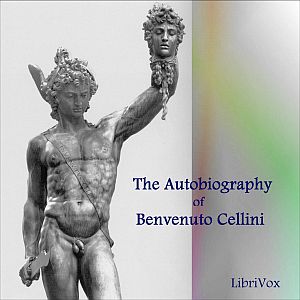
Cellini's autobiographical memoirs, which he began writing in Florence in 1558, give a detailed account of his singular career, as well as his loves, hatreds, passions, and delights, written in an energetic, direct, and racy style. They show a great self-regard and self-assertion, sometimes running into extravagances which are impossible to credit. He even writes in a complacent way of how he contemplated his murders before carrying them out. He writes of his time in Paris:
Parts of his tale recount some extraordinary events and phenomena; such as his stories of conjuring up a legion of devils in the Colosseum, after one of his not innumerous mistresses had been spirited away from him by her mother; of the marvelous halo of light which he found surrounding his head at dawn and twilight after his Roman imprisonment, and his supernatural visions and angelic protection during that adversity; and of his being poisoned on two separate occasions.
The autobiography is a classic, and commonly regarded as one of the most colourful; it is certainly the most important autobiography from the Renaissance.
Cellini's autobiography is one of the books Tom Sawyer mentions as inspiration while freeing Jim in The Adventures of Huckleberry Finn. (Summary adapted from Wikipedia by Karen Merline)
30 episodes
Thomas D'Arcy McGee was an Irish refugee and a father of the Canadian confederation. His work on Irish history is comprehensive, encompassing twelve books; Book 9 subtitled “From the Accession of James I Till the Death of Cromwell”, addresses the early Stuart period’s unsettled history and the actions of that person, who, seen from the Irish perspective, was certainly one of the most villainous of men: Cromwell. (Summary by Sibella Denton)
12 episodes

Parkman has been hailed as one of America's first great historians and as a master of narrative history. Numerous translations have spread the books around the world. The American writer and literary critic Edmund Wilson (1895-1972) in his book O Canada (1965), described Parkman’s France and England in North America in these terms: The clarity, the momentum and the color of the first volumes of Parkman’s narrative are among the most brilliant achievements of the writing of history as an art.
Parkman's biases, particularly his attitudes about nationality, race, and especially Native Americans, has generated criticism. The Canadian historian W. J. Eccles harshly criticized what he perceived as Parkman's bias against France and Roman Catholic policies, as well as what he considered Parkman's misuse of French language sources. However, Parkman's most severe detractor was the American historian Francis Jennings, an outspoken and controversial critic of the European colonization of North America, who went so far as to characterize Parkman's work as "fiction" and Parkman himself as a "liar".
Unlike Jennings and Eccles, many modern historians have found much to praise in Parkman's work even while recognizing his limitations. Calling Jennings' critique "vitriolic and unfair," the historian Robert S. Allen has said that Parkman's history of France and England in North America "remains a rich mixture of history and literature which few contemporary scholars can hope to emulate". The historian Michael N. McConnell, while acknowledging the historical errors and racial prejudice in Parkman's book The Conspiracy of Pontiac, has said: "...it would be easy to dismiss Pontiac as a curious perhaps embarrassing artifact of another time and place. Yet Parkman's work represents a pioneering effort; in several ways he anticipated the kind of frontier history now taken for granted...." Parkman's masterful and evocative use of language remains his most enduring and instructive legacy.
This is Vol 1 of Parkman's series "France and England in North America." The LibriVox recording does not include footnotes, many of which are extended quotations from original French sources: See project Gutenberg http://www.gutenberg.org/etext/3721 for footnotes. (Summary adapted from Wikipedia by Karen Merline)
Part 1: Pioneers of France in the New World
Part 2: The Jesuits in North America in the 17th Century
Part 4: The Old Régime in Canada
Part 5: Count Frontenac and New France under Louis XIV
Part 6: Montcalm and Wolfe
Part 7: A Half Century of Conflict
30 episodes
Thomas D'Arcy McGee was an Irish refugee and a father of the Canadian confederation. His work on Irish history is comprehensive, encompassing twelve books; Book 10 subtitled “From the Restoration of Charles II to the Accession of George I”, addresses the period of the restoration and the further oppresion of the Irish people and religion. (Summary by Sibella Denton)
12 episodes
Thomas D'Arcy McGee was an Irish refugee and a father of the Canadian confederation. His work on Irish history is comprehensive, encompassing twelve books; Book 11 subtitled “From the Accession of George I to the Legislative Union of England and Ireland”, addresses the 1700s, the Georges, the further oppression of the Irish people, and the final dismissal of the Irish Parliament. (Summary by Sibella Denton)
23 episodes
Another fine history book for children! Published in 1917, Marshall’s book of stories from the history of the United States begins with accounts of exploration and settlement, and ends with the presidency of Woodrow Wilson.
This is Part 2: Stories of Virginia, from chapter 13 (Captain John Smith) to chapter 21 (The Knights of the Golden Horseshoe). Read along and view the original illustrations at mainlesson.com.
Part 1: http://librivox.org/this-country-of-ours-part-1-by-he-marshall/
Part 3: http://librivox.org/this-country-of-ours-part-3-by-h-e-marshall/
Part 4: http://librivox.org/this-country-of-ours-part-4-by-h-e-marshall/
Part 5: http://librivox.org/this-country-of-ours-part-5-by-h-e-marshall/Part 6: http://librivox.org/this-country-of-ours-part-6-by-h-e-marshall/Part 7: http://librivox.org/this-country-of-ours-part-7-by-henrietta-elizabeth-marshall/(Summary by Kara)
9 episodes
Thomas D'Arcy McGee was an Irish refugee and a father of the Canadian confederation. His work on Irish history is comprehensive, encompassing twelve books; Book 10 subtitled “From the Union of Great Britain and Ireland to the Emancipation of the Catholics”, addresses the period of the creation of the United Kingdom to the granting of religious freedom in Ireland. (Summary by Sibella Denton)
10 episodes

Pantheisticon: or, the Form Of Celebrating the Socratic-Society. Divided into Three Parts. Which Contain, I. The Morals and Axioms of the Pantheists; or the Brotherhood. II. Their Deity and Philosophy. III. Their Liberty, and a Law, neither deceiving, nor to be deceived. To which is prefix'd a Discourse upon the Antient and Modern Societies of the Learned, as also upon the Infinite and Eternal Universe. And subjoined, a short dissertation upon a Two-fold Philosophy of the Pantheists, that is to be followed; together with an Idea of the best and most accomplished Man. Written Originally in Latin, by the Ingenious Mr. John Toland. And now, for the first Time, faithfully rendered into English. (Summary from frontispiece.)
The readers for the individual chapters can be found in the table below. Three chapters were read as dialogues by two persons:
The First Part of the Form of Celebrating the Socratic Society: The Morals and Axioms of the Society - read by Ruth Golding & Anna Simon
The Second Part: The Deity and Philosophy of the Society - read by Ruth Golding & Anna Simon
The Third Part: The Liberty of the Society; and a Law, neither deceiving, nor be deceived - read by Alessandro Gagliardi & Anna Simon
10 episodes
Berkeley uses Hylas as his primary contemporary philosophical adversary, John Locke. A Hylas is featured in Greek mythology and the name Hylas is derived from an ancient Greek word for "matter" which Hylas argues for in the dialogues. Philonous translates as "lover of mind." In The First Dialogue, Hylas expresses his disdain for skepticism, adding that he has heard Philonous to have "maintained the most extravagant opinion... namely, that there is no such thing as material substance in the world." Philonous argues that it is actually Hylas who is the skeptic and that he can prove it. Thus, a philosophical battle of wit begins.
(Summary from Wikipedia)
6 episodes
Sätze aus der höhern Welt- und Menschenkunde (Maximes) von La Rochefoucauld (1613 - 1680), veröffentlicht 1678; übersetzt von Friedrich Schulz (1762-1798), veröffentlicht 1798François VI. de La Rochefoucauld war ein französischer Schriftsteller und philosophischer Aphoristiker. Er gilt als der erste der französischen Moralisten.1658 begann La Rochefoucauld mit der Abfassung kürzerer aphoristischer Betrachtungen über die Natur des Menschen allgemein und die Verhaltensweisen der Angehörigen der adligen Gesellschaft im Besonderen. 1664 gab er unter dem Titel Réflexions ou sentences et maximes morales eine Sammlung dieser pointierten, meist pessimistischen, oft sarkastischen Texte heraus.(Zusammenfassung von Wikipedia)
11 episodes
Another fine history book for children! Published in 1917, Marshall's book of stories from the history of the United States begins with accounts of exploration and settlement, and ends with the presidency of Woodrow Wilson.This is Part 5: Stories of the French in America, from chapter 45 (How the Mississippi was Discovered) to chapter 50 (The Rebellion of Pontiac). Read along and view the original illustrations at http://mainlesson.com/ .Part 1: http://librivox.org/this-country-of-ours-part-1-by-he-marshall/Part 2: http://librivox.org/this-country-of-ours-part-2-by-h-e-marshall/Part 3: http://librivox.org/this-country-of-ours-part-3-by-h-e-marshall/Part 4: http://librivox.org/this-country-of-ours-part-4-by-h-e-marshall/Part 6: http://librivox.org/this-country-of-ours-part-6-by-h-e-marshall/Part 7: http://librivox.org/this-country-of-ours-part-7-by-henrietta-elizabeth-marshall/(Summary by Kara)
6 episodes
The Ethics is a philosophical book written by Baruch Spinoza. It was written in Latin. Although it was published posthumously in 1677, it is his most famous work, and is considered his magnum opus.In The Ethics, Spinoza attempts to demonstrate a "fully cohesive philosophical system that strives to provide a coherent picture of reality and to comprehend the meaning of an ethical life. Following a logical step-by-step format, it defines in turn the nature of God, the mind, human bondage to the emotions, and the power of understanding -- moving from a consideration of the eternal, to speculate upon humanity's place in the natural order, freedom, and the path to attainable happiness."(Wikipedia)
62 episodes
Volume III of a series containing anecdotes and stories, some well-known, others less so, of particular countries. This third volume covers the discovery, colonization, founding, and early years of the countries of South America, describing history for children and young adults in an exciting and novel manner. (Summary by Kalynda)
32 episodes
Another fine history book for children! Published in 1917, Marshall's book of stories from the history of the United States begins with accounts of exploration and settlement, and ends with the presidency of Woodrow Wilson.This is Part 6: Stories of the Struggle for Liberty, from chapter 51 (The Boston Tea-Party) to chapter 63 (A Turning Point in the World's History). Read along and view the original illustrations at http://mainlesson.com/ .Part 1: http://librivox.org/this-country-of-ours-part-1-by-he-marshall/Part 2: http://librivox.org/this-country-of-ours-part-2-by-h-e-marshall/Part 3: http://librivox.org/this-country-of-ours-part-3-by-h-e-marshall/Part 4: http://librivox.org/this-country-of-ours-part-4-by-h-e-marshall/Part 5: http://librivox.org/this-country-of-ours-part-5-by-h-e-marshall/Part 7: http://librivox.org/this-country-of-ours-part-7-by-henrietta-elizabeth-marshall/(Summary by Kara)
13 episodes
The History of the Thirty Years War is a five volume work, which followed his very successful History of the Revolt of the Netherlands. Written for a wider audience than Revolt, it is a vivid history, colored by Schiller’s own interest in the question of human freedom and his rationalist optimism. Volume 1 covers the background of the war, through the Battle of Prague in late 1620. (Introduction by Alan Winterrowd)
6 episodes
The Summa Theologica (or the Summa Theologiae or simply the Summa, written 1265–1274) is the most famous work of Thomas Aquinas (c. 1225–1274) although it was never finished. It was intended as a manual for beginners and a compilation of all of the main theological teachings of that time. It summarizes the reasoning for almost all points of Christian theology in the West, which, before the Protestant Reformation, subsisted solely in the Roman Catholic Church. The Summa's topics follow a cycle: the existence of God, God's creation, Man, Man's purpose, Christ, the Sacraments, and back to God. (Summary adapted from the Wikipedia)This is part five of six parts of the Pars Prima, consisting of the Treatise on Man.
33 episodes
'Cut a large old hare in small pieces, and put it in a mug with three blades of mace, a little salt, two large onions, one red herring, six morels, half a pint of red wine, three quarts of water, bake it in a quick oven three hours...'. English cooking at its best from eighteenth-century celebrity chef, Elizabeth Raffald. Born in Doncaster, Raffald worked for 15 years as housekeeper in great houses, including that of Lady Elisabeth Warburton at Arley Hall, Cheshire, before setting up as a confectioner and innkeeper in Manchester. The Experienced English Housekeeper was published in 1769 and ran to 13 editions. This reading is from the 10th edition (1786) and includes 900 recipes (or as listeners will discover, receipts). Vegetarians take note, some sections of this book contain large quantities of meat! (Summary by Phil Benson)
23 episodes
Those who have an experiential predisposition in their faith would do well to read The Conversations and Letters of Brother Lawrence… if they have not done so already. This is a lesser-known work, often overlooked. These Spiritual Maxims were manuscripts found amongst the aforementioned Letters and also written by Brother Lawrence himself. The Maxims are different from the letters — the careful arrangement adopted suggests matured thought and the inference is not unreasonable that he intended them to sum up his teachings.The reader apologises for the unworthiness of his delivery… the English itself was difficult enough to read and the ancient punctuation had more commas than full stops. My sometimes stilted delivery is caused by me being partially-sighted and having to read everything in short sections. (Introduction by the reader)
6 episodes
A Short Account of the Destruction of the Indies (Spanish: Brevísima relación de la destrucción de las Indias) is an account written by the Spanish Dominican friar Bartolomé de las Casas in 1542 (published in 1552) about the mistreatment of the indigenous peoples of the Americas in colonial times and sent to then Prince Philip II of Spain. One of the stated purposes for writing the account is his fear of Spain coming under divine punishment and his concern for the souls of the Native Peoples. The account is one of the first attempts by a Spanish writer of the colonial era to depict examples of unfair treatment that indigenous people endured in the early stages of the Spanish conquest of the Greater Antilles, particularly the island of Hispaniola. Las Casas's point of view can be described as being heavily against some of the Spanish methods of colonization, which, as he describes, have inflicted a great loss on the indigenous occupants of the islands. (Summary by Wikipedia)
21 episodes

Washington Irving, an author, biographer, historian, and diplomat, completed his first major work, a satire of contemporary local history and politics entitled A History of New-York from the Beginning of the World to the End of the Dutch Dynasty, by Diedrich Knickerbocker in 1809. Prior to its publication, Irving started a promotional hoax (not unlike some modern-day publicity stunts?) by placing fake missing persons advertisements in local newspapers asking for help in locating Diedrich Knickerbocker. As a continuation of the hoax, Irving also published a notice purported to be written by the proprietor of the hotel where Knickbocker was staying, in which he threatened to publish a manuscript “left behind” by Knickerbocker if the hotel bill was not paid. From “The Author’s Apology”: “The main object of my work, in fact, had a bearing wide from the sober aim of history, but one which, I trust, will meet with some indulgence from poetic minds. It was to embody the traditions of our city in an amusing form; to illustrate its local humors, customs and peculiarities; to clothe home scenes and places and familiar names with those imaginative and whimsical associations so seldom met with in our new country, but which live like charms and spells about the cities of the old world, binding the heart of the native inhabitant to his home.” - (Summary by lubee930 from the text and adapted from Wikipedia)
33 episodes
Francis Parkman (1823-1893) is one of the great nineteenth century United States historians along with William Prescott, John Lothrop Motley, George Bancroft, and Henry Adams. Parkman has been hailed as one of America's great historians and as a master of narrative history. He is most known for his The Oregon Trail and his seven volume work on the history of the French and English in North America. A Half Century of Conflict is the sixth volume of the series but was the last to be published in 1892. It covers the period from 1700 to 1748. - Summary by Richard Carpenter
Part 1: Pioneers of France in the New World
Part 2: The Jesuits in North America in the 17th Century
Part 4: The Old Régime in Canada
Part 5: Count Frontenac and New France under Louis XIV
Part 6: Montcalm and Wolfe
Part 7: A Half Century of Conflict
47 episodes

Washington Irving, an author, biographer, historian, and diplomat, completed his first major work, a satire of contemporary local history and politics entitled A History of New-York from the Beginning of the World to the End of the Dutch Dynasty, by Diedrich Knickerbocker in 1809. Prior to its publication, Irving started a promotional hoax (not unlike some modern-day publicity stunts?) by placing fake missing persons advertisements in local newspapers asking for help in locating Diedrich Knickerbocker. As a continuation of the hoax, Irving also published a notice purported to be written by the proprietor of the hotel where Knickbocker was staying, in which he threatened to publish a manuscript “left behind” by Knickerbocker if the hotel bill was not paid. From “The Author’s Apology”: “The main object of my work, in fact, had a bearing wide from the sober aim of history, but one which, I trust, will meet with some indulgence from poetic minds. It was to embody the traditions of our city in an amusing form; to illustrate its local humors, customs and peculiarities; to clothe home scenes and places and familiar names with those imaginative and whimsical associations so seldom met with in our new country, but which live like charms and spells about the cities of the old world, binding the heart of the native inhabitant to his home.” - Summary by From the text and adapted from Wikipedia by lubee930
39 episodes
CHAPTER I
HOMES OF THE COLONISTS
When the first settlers landed on American shores, the difficulties in finding or making shelter must have seemed ironical as well as almost unbearable. The colonists found a land magnificent with forest trees of every size and variety, but they had no sawmills, and few saws to cut boards; there was plenty of clay and ample limestone on every side, yet they could have no brick and no mortar; grand boulders of granite and rock were everywhere, yet there was not a single facility for cutting, drawing, or using stone. These homeless men, so sorely in need of immediate shelter, were baffled by pioneer conditions, and had to turn to many poor expedients, and be satisfied with rude covering. In Pennsylvania, New York, Massachusetts, and, possibly, other states, some reverted to an ancient form of shelter: they became cave-dwellers; caves were dug ... (taken from first chapter of the book). Talk about starting from scratch!! Susan Morin
18 episodes
Francisco Pizarro (1471 - 1541) was born into poverty, the illegitimate son of a Spanish soldier. After a brief career as a swineherd, he volunteered to join an expedition to the colony of Darien in Panama. He rose through the ranks to become right hand man of the governor. After hearing rumours of a rich country of gold to the south, he received permission from the king of Spain to lead an expedition to explore and attempt to conquer the Peruvian empire. This biography describes how, with an army of only 168 men, he was able to subjugate an entire nation. - Summary by Patrick Eaton
19 episodes
Another fine history book for children! Published in 1917, Marshall's book of stories from the history of the United States begins with accounts of exploration and settlement, and ends with the presidency of Woodrow Wilson.This is Part 7: Stories of the United States under the Constitution, from chapter 64 (Washington First in War, First in Peace) to chapter 99 (Wilson - The Great War). Read along and view the original illustrations at mainlesson.com . Part 1: http://librivox.org/this-country-of-ours-part-1-by-he-marshall/Part 2: http://librivox.org/this-country-of-ours-part-2-by-h-e-marshall/Part 3: http://librivox.org/this-country-of-ours-part-3-by-h-e-marshall/Part 4: http://librivox.org/this-country-of-ours-part-4-by-h-e-marshall/Part 5: http://librivox.org/this-country-of-ours-part-5-by-h-e-marshall/Part 6: http://librivox.org/this-country-of-ours-part-6-by-h-e-marshall/(Summary by Kara)
36 episodes

A History through Poetry of the exploration and settling of North American by Europeans. Beginning with Leif Erikson, and continuing through the Age of Exploration to the colonies of Virginia and New Amsterdam, including the arrival of the Puritans, the life of Pocahontas, the persecution of the Quakers, and the horror of the Salem Witch Trials, with works by Henry Wadsworth Longfellow, John Greenleaf Whittier, Edward Everett Hale, Benjamin Franklin, William Wordsworth, Julia Ward Howe, and many, many more. This is the first of 5 volumes that cover American History through poetry from the Vikings to WWI. - Summary by Ed Humpal
Cast List (The Proclamation)
Cole: DomBomadilMerry: Adele de PignerollesKempthorn: Michele FryMarshal: Douglas TaylorUpsall: Eileen TippingChristison: Ed HumpalNarrator: Esther ben SimonidesEditor: Adele de Pignerolles
Cast List (The Trial):
Hathorn: Ed HumpalMartha: SeekWisdomMary: Beth ThomasCorey: Douglas TaylorGloyd: Joseph TablerNarrator, Editor: Adele de Pignerolles
41 episodes
A history through poetry of the American Revolution, from the early days of unrest, through the Boston Tea Party, The Ride of Paul Revere, the campaign at Valley Forge, to the time of peace and the forming of the Nation, including works by Oliver Wendell Holmes, Benjamin Franklin, Thomas Paine, Henry Wadsworth Longfellow, William Cullen Bryant, Bret Harte, Alfred Tennyson, and many more. This is the second of 5 volumes that cover American History through poetry from the Vikings to WWI. - Summary by Ed Humpal
20 episodes
Volume Four covers the battle of Lutzen (November, 1633) to the death of Wallenstein (February, 1634) focusing on the reaction of the Protestant forces following the death of Gustavus Adolphus at Lutzen, and Wallenstein's actions leading to his death. - Summary by Alan Winterrowd
4 episodes
This volume covers the age of expansion from the Revolution to the Civil War, including the creation of the Constitution, the Presidency of George Washington, the War of 1812, and the settling of the West, along with tales of Johnny Appleseed, the Alamo, the Gold Rush, the death of Jefferson, and The Wreck of the Hesperus. Authors include Henry Wadsworth Longfellow, Ralph Waldo Emerson, Oliver Wendell Holmes, Francis Scott Key, John Greenleaf Whittier and Lord Byron. - Summary by Ed Humpal
14 episodes
Volume VII of a series containing anecdotes and stories, some well-known, others less so, of particular countries. This seventh volume covers the history of Spain from before the Moorish conquest to the loss of overseas territories at the end of the 19th century, describing history for children and young adults in an exciting and novel manner. - Summary by Kalynda
36 episodes
This book is a popular science book written in the late 1600s. It is written as a series of conversations between a gallant philosopher and a countess, while walking in her garden and gazing at the stars. The philosopher explains the heliocentric (sun as the centre) model of the solar system and also muses on the possibility of extraterrestrial life. While it explains the heliocentric model, unlike other astronomy works of the time, it did not attract the attention of the Church. (Summary by TriciaG, modified from Wikipedia)
14 episodes
The Philosophical Studies from The Human Comedy (La Comedie Humaine) are a series of works that are intended as a reflection on history in part through the use of fiction. 'Catherine de Medici' is one such 'study', and features, alongside detailed history (and even architectural) sections, elements of the 'story' are fictionalised. In particular, this happens through dialogue that describes the feelings of the characters and what they are doing, these parts in the manner of a novel. In particular, Catherine de Medici (apparently), was depicted by historians as a bad ruler. This book is an attempt to redress that misunderstanding. Catherine de Medici is shown as one of the most powerful rulers of her day, using the intricacies of court to enact measures to improve the situation of her peoples and herself. (Summary by Reader)
23 episodes
Kant's Prolegomena, although a small book, is indubitably the most important of his writings. It furnishes us with a key to his main work, The Critique of Pure Reason; in fact, it is an extract containing all the salient ideas of Kant's system. It approaches the subject in the simplest and most direct way, and is therefore best adapted as an introduction into his philosophy. - Summary by Open Court Publishing Company
11 episodes
Phänomenologie des Geistes (1807) is Georg Wilhelm Friedrich Hegel's most important and widely discussed philosophical work. Hegel's first book, it describes the three-stage dialectical life of Spirit. The title can be translated as either The Phenomenology of Spirit or The Phenomenology of Mind, because the German word Geist has both meanings.
Phenomenology was the basis of Hegel's later philosophy and marked a significant development in German idealism after Kant. Focusing on topics in metaphysics, epistemology, physics, ethics, history, religion, perception, consciousness, and political philosophy, The Phenomenology is where Hegel develops his concepts of dialectic (including the Master-slave dialectic), absolute idealism, ethical life, and Aufhebung. The book had a profound effect in Western philosophy, and "has been praised and blamed for the development of existentialism, communism, fascism, death of God theology, and historicist nihilism." - Summary by Wikipedia
27 episodes
This slim volume by the Oxford University lecturer, George Henry Wakeling, deals with the period in British history from the reign of King James I through the death of Queen Anne. The story begins with England, transformed by the Protestant Reformation and keen to confront Catholic Spain, but burdened by a monarch unequal to national ambitions. Wakeling portrays the subsequent battles for dominance between the contending Protestant sects and chronicles the struggle for sovereignty between the British Crown and the emerging power of Parliament. - Summary by Pamela Nagami
10 episodes
The celebrated crimes committed during the life of Joan (Joanna I) of Naples span from personal misdeeds (adulteries and mariticide) to regional warfare (like the 1345 War in the Piedmont), and ultimately unraveled her father’s legacy (King Robert the Wise). Dumas projects her story through a deathly lens: beginning with the passing of King Robert the Wise, winding through the untimely demise of nobles, soldiers, and children, then ending at Joan’s own assassination. - Summary by jvanstan
8 episodes
Volume 5 concludes the History of the Thirty Years War in Germany. [Note From the first PG etext of this work: Separate sources indicate that at the beginning of this war there were about 15 million people in Germany, and at the end of the war there were about 4 million. If this is not surprising enough, war broke out again only 10 years after the conclusion of this war.]
6 episodes
In 1906, William Jennings Bryan, himself a famous American orator, and Francis Whiting Halsey published a series of the most famous orations of all time. They are ordered by both geographic area and time period, ranging from Ancient Greece to their contemporary United States. The third, fourth, and fifth volumes of this collection concern British speakers. The speeches contained in this third volume are ordered chronologically. We begin in the year 710 AD with a speech on the Saints, and end this volume in 1777 with the realisation of the impossibility of regaining control over the American colonies. - Summary by Carolin
28 episodes
Much was been written about the American Revolution, but our knowledge of the private solders of the patriot army is confined chiefly to Washington’s description of their sufferings at Valley Forge. This 1902 book by a Harvard University librarian helps to fill in the picture of the common soldier throughout the war by collating references from a great many primary and secondary sources. - Summary by Book Preface and David Wales
11 episodes

Bartolomé de las Casas fue un fraile dominico español que fue coetáneo cuya vida transcurrió paralela a la llegada de Cristóbal Colón a lo que se denominó "Nuevo Mundo", llegando a desempeñar algunos de los primeros puestos administrativos y eclesiásticos en las recién creadas colonias de América. Ha pasado a la Historia por sus crónicas de la colonización así como por su defensa de los pueblos indígenas. Gracias a sus esfuerzos continuados , y al de otros importantes autores como Francisco de Vitoria, en 1542 se publicaron las Leyes Nuevas, en las que se prohibía la esclavitud de los indios en territorio español, y ése mismo año, se publica por primera vez esta obra para libre circulación y general conocimiento.
La obra "Brevísima relación de la destrucción de las Indias" fue escrita por De las Casas con un claro propósito de denuncia, al exponer y dar a conocer las injusticias y malos tratos con que los primeros conquistadores trataron a los indígenas americanos. Su objetivo era apelar al principe Felipe (encargado en aquella época de los asuntos de Indias y futuro Emperador) para que favoreciese la promulgación de leyes que los defendiesen y protegiesen. En sus páginas no sólo se encuentran relatos de las atrocidades que se cometieron en los primeros años de la colonización de las américas, sino que también se pueden encontrar reflexiones acerca de las costumbres de los distintos pueblos americanos, sobre la bondad y la maldad del ser humano, así como el papel de las leyes y el buen gobierno. - Summary by Epachuko.
24 episodes

